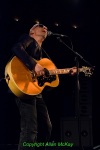Bob Bradshaw’s a bit of a regular around these parts. We’ve reviewed four of his albums and this is his third contribution to our High Fives feature. His songs are exceptional and original and his albums are examples of sequencing a series of songs to create a coherent entity, particularly on his 2019 album “Queen of the West”.
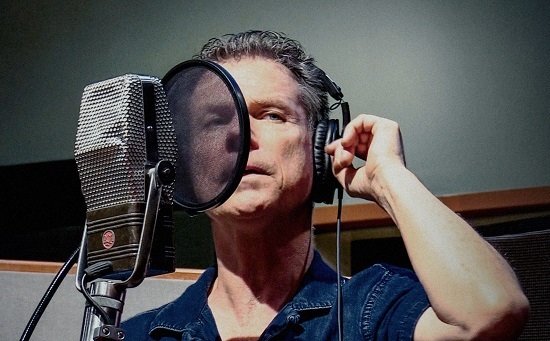
Podcasts were a life-saver for me over the past year and a half, especially music podcasts. Here’s my high five, with examples (sometimes drawn from previous years but I heard them for the first time in 2021).
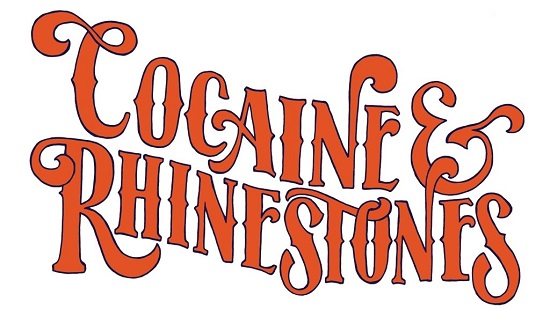
Cocaine and Rhinestones.
Tyler Mahon Coe’s wildly opinionated, rip-roaring podcast about the history of Country music is a trip. His use of sometimes obscure song clips to illustrate points is masterly. He’s devoting the whole of the present season to George Jones. This episode from the first season about Buck Owens and Don Rich is terrific:
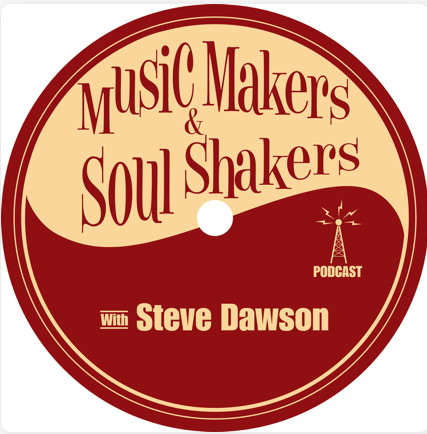
Music Makers and Soul Shakers.
Steve Dawson is a fine guitar player/producer himself and this is one of the best nuts-and-bolts podcasts for and about musicians I’ve heard. There’s some great stories in this episode with Marc Ribot:
https://www.makersandshakerspodcast.com/podcast/8-marc-ribot
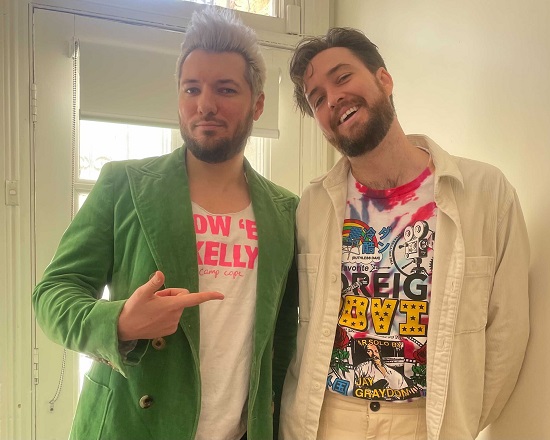
My Favorite Album.
Host Jeremy Dylan has interviewed Daniel Lanois, Mitchell Froom, and Max Weinberg, among others. In this episode the great Nick Lowe explains how he puts a live show together:
https://myfavoritealbum.libsyn.com/338-nick-lowe-breaks-down-his-live-show
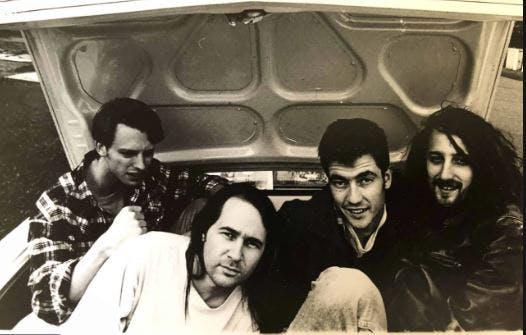
Love That Album.
Maurice Bursztynski’s wide-ranging, low-key approach is perfect for discovering new music, or revisiting old favorites. Steve Berlin, from Los Lobos, talking about their 2021 album ‘Native Sons’ is a good place to start:
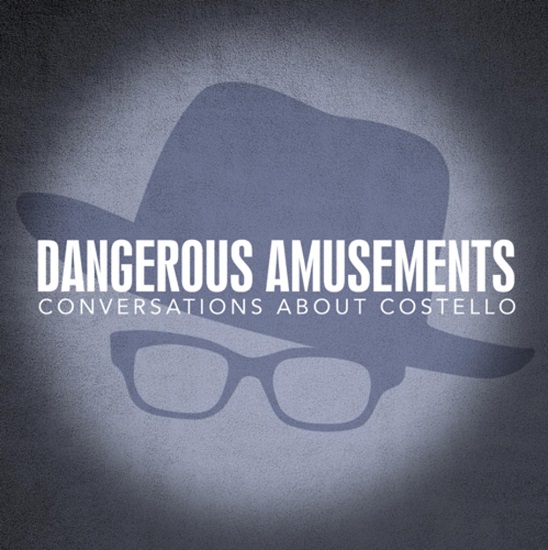
Dangerous Amusements: The Elvis Costello Playlist. Perhaps only Dylan or Bowie are worthy of this level of scrutiny (and there are podcasts about both that I don’t think much of.) Fellow musicians, journalists and music business folk discuss (with host Stu Arrowsmith) what Costello has meant to them over the years, and pick one song from each of the five decades Costello has been producing his idiosyncratic catalogue. There’s plenty good stuff in this interview with Glen Colson who did publicity and promotion for Costello in the early years:
https://podcasts.apple.com/il/podcast/glen-colson/id1535324499?i=1000527944399&l=iw
In December 2014, I made a conscious decision that I would get to as many gigs as I possibly could during 2015. Not all of those gigs became reviews or picture galleries, but I certainly broke my previous record, which has stood since my second year at university. I love those moments at gigs when something happens which is either so unexpected or so exceptional that the hair stands up on the back of your neck and you know that you’ll remember it forever. Here are five of those from 2015:
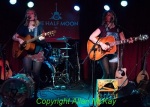 Sound of the Sirens – In mid-March this year I was at The Half Moon in Putney to see Mad Dog Mcrea. I’d just reviewed their “Almost Home” album and thought they would be good to see live. I hadn’t heard of the support band, Sound of the Sirens, but I like to see support bands because you never know when you’ll make a great discovery; this was one of those nights. Abbe Martin and Hannah Wood grabbed my attention from the opening notes with superb songs, perfect harmonies and counterpoint and a huge dynamic range combining to create a set of acoustic anthems for the twenty-first century, all of it completely new to me. The entire set was stunning, but “Faith in Fire” had me transfixed; I had to just stand and watch, open-mouthed as the song progressed from the quiet intro to a rousing finale. Just perfect.
Sound of the Sirens – In mid-March this year I was at The Half Moon in Putney to see Mad Dog Mcrea. I’d just reviewed their “Almost Home” album and thought they would be good to see live. I hadn’t heard of the support band, Sound of the Sirens, but I like to see support bands because you never know when you’ll make a great discovery; this was one of those nights. Abbe Martin and Hannah Wood grabbed my attention from the opening notes with superb songs, perfect harmonies and counterpoint and a huge dynamic range combining to create a set of acoustic anthems for the twenty-first century, all of it completely new to me. The entire set was stunning, but “Faith in Fire” had me transfixed; I had to just stand and watch, open-mouthed as the song progressed from the quiet intro to a rousing finale. Just perfect.
Graham Parker & Brinsley Schwarz at The Union Chapel – My first visit to the lovely Union Chapel and I was there with Phil Burdett to see one of my teenage heroes play a stripped-down set with Brinsley Schwarz (who was in the first proper band I saw live). Graham Parker has such a huge catalogue of songs that it’s impossible to predict which ones would make the cut on the night. Over the pre-gig pint, I came up with a small wish-list; one of which was almost a certainty, and the other a bit of an outsider. The opening song “Watch the Moon Come Down” ticked the certainty box, but it wasn’t until much later in the set that the harrowing “You Can’t be Too Strong” completed the list. The audience reaction of awed silence throughout the song and an explosion of applause at the end showed that I wasn’t the only person waiting to hear that one. I think I may have had something in my eye at that point.
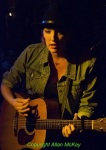 Hannah Aldridge at Green Note – This is another gig that came out of hearing an album and deciding that I had to see the artist. Hannah’s debut, “Razor Wire”, is a wonderful piece of work featuring some brutally honest and sincere depictions of her life and I was keen to hear how these songs would strip down to an acoustic format. As expected, the songs worked perfectly in their original forms with Hannah’s pure, clear voice and acoustic guitar; Hannah was engaging between songs, giving some background to each piece, explaining the inspiration behind it. The song which completely silenced the full house at Green Note was “Parchman”, a song that, uncharacteristically, isn’t autobiographical; it’s the story of a woman on death row for murdering her abusive husband. I swear you couldn’t even hear anyone breathe as Hannah pulled the maximum emotion from the song by playing it completely straight; no vocal tricks or adornments, just a perfect song and a beautiful delivery, leaving the audience emotionally drained.
Hannah Aldridge at Green Note – This is another gig that came out of hearing an album and deciding that I had to see the artist. Hannah’s debut, “Razor Wire”, is a wonderful piece of work featuring some brutally honest and sincere depictions of her life and I was keen to hear how these songs would strip down to an acoustic format. As expected, the songs worked perfectly in their original forms with Hannah’s pure, clear voice and acoustic guitar; Hannah was engaging between songs, giving some background to each piece, explaining the inspiration behind it. The song which completely silenced the full house at Green Note was “Parchman”, a song that, uncharacteristically, isn’t autobiographical; it’s the story of a woman on death row for murdering her abusive husband. I swear you couldn’t even hear anyone breathe as Hannah pulled the maximum emotion from the song by playing it completely straight; no vocal tricks or adornments, just a perfect song and a beautiful delivery, leaving the audience emotionally drained.
 Dean Owens at The Union Chapel – It’s fair to say that Dean Owens is a bit of a Riot Squad favourite and it’s great to see that he’s having some very well-deserved success this year. Landing the support slot for Rosanne Cash at The Union Chapel gave Dean a chance to play in front of a full house and an appreciative audience in London with only his guitar and a bunch of great songs. He had the audience with him from the start and got a great response for the whole set but saved something very special for the end. He went completely unplugged; no amplification for guitar or voice. I’ve seen this done in smaller venues (Hannah Aldridge did it at Green Note) but it was big moment in a venue this size, however good the acoustics are. Dean hit the ball out of the park; he pulled out a rip-roaring version of Buck Owens’ “Love’s Gonna Live Here” which rightly earned him a huge response from a slightly stunned audience. A magical moment.
Dean Owens at The Union Chapel – It’s fair to say that Dean Owens is a bit of a Riot Squad favourite and it’s great to see that he’s having some very well-deserved success this year. Landing the support slot for Rosanne Cash at The Union Chapel gave Dean a chance to play in front of a full house and an appreciative audience in London with only his guitar and a bunch of great songs. He had the audience with him from the start and got a great response for the whole set but saved something very special for the end. He went completely unplugged; no amplification for guitar or voice. I’ve seen this done in smaller venues (Hannah Aldridge did it at Green Note) but it was big moment in a venue this size, however good the acoustics are. Dean hit the ball out of the park; he pulled out a rip-roaring version of Buck Owens’ “Love’s Gonna Live Here” which rightly earned him a huge response from a slightly stunned audience. A magical moment.
 Rosanne Cash & John Leventhal at The Union Chapel – I know, I’m just being greedy here; two epiphanies on the same night. Rosanne Cash featured a lot of songs from the award-winning “The River and the Thread” and, with husband John Leventhal, was superb throughout, taking time to tell some of the stories behind the songs and establish a warm rapport with the audience. Strangely enough, the entire set seemed to come into sharp focus on someone else’s song, Bobbie Gentry’s enigmatic “Ode to Billy Joe”, which pulled all of the other threads together. A very simple arrangement and heartfelt performances pulled the audience into the song and generated a response that was part acclamation and part relief at escape from the song’s interwoven strands of tragedy and banality.
Rosanne Cash & John Leventhal at The Union Chapel – I know, I’m just being greedy here; two epiphanies on the same night. Rosanne Cash featured a lot of songs from the award-winning “The River and the Thread” and, with husband John Leventhal, was superb throughout, taking time to tell some of the stories behind the songs and establish a warm rapport with the audience. Strangely enough, the entire set seemed to come into sharp focus on someone else’s song, Bobbie Gentry’s enigmatic “Ode to Billy Joe”, which pulled all of the other threads together. A very simple arrangement and heartfelt performances pulled the audience into the song and generated a response that was part acclamation and part relief at escape from the song’s interwoven strands of tragedy and banality.
And I suppose that’s one reason that we go to gigs; we always hope that we’ll see those moments that you can’t capture on film or record/CD/MP3; the things that only happen once. I think five in one year’s pretty good going. Thanks to Sound of the Sirens, Graham Parker, Hannah Aldridge, Dean Owens and Rosanne Cash for those fabulous memories.
Rosanne Cash and John Leventhal supported by Dean Owens at The Union Chapel; now there’s one that ticks all the boxes. The sound in the venue is outstanding for acoustic performances (it is a working church after all), the audience is receptive and the atmosphere’s always warm and friendly; even the security staff are pleasant. If ever there was a perfect venue for Dean Owens to play his biggest London show so far, this was the one and he wasn’t about to disappoint.
He opened with “Shine like the Road after the Rain” and immediately had the audience on his side; none of this polite applause nonsense, this was a crowd that immediately recognised great songwriting and performance. With only a thirty minute slot, Dean chose his songs carefully with four from his new album, the intensely personal “Into the Sea”, which we reviewed earlier this year. The gentle longing of “Valentine’s Day in New York” set a few toes tapping before the triple emotional whammy of “Virginia Street”, “Evergreen” and “The Only One”. The last song should have suffered from the loss of Will Kimbrough’s studio harmonies, but it didn’t; the audience listened entranced and gave the song the best response so far. Which left enough time to fit in “Raining in Glasgow” (just one of Dean’s anthems) and a completely unplugged crowd-pleasing romp through Buck Owens’ “Love’s Gonna Live Here”. And leave them wanting more…
Rosanne Cash is a bona fide country legend, regularly bracketed with Emmylou Harris and Dolly Parton and with good reason; she’s written some superb songs and also recorded some fine interpretations. The current European tour, with her husband, guitarist and songwriter John Leventhal, is nominally in support of her last album, the double Grammy winner “The River & the Thread” but it’s obvious that the show is much more than that. It’s about the links between that album, the delta, the blues and the history of the Southern states, and the various tributaries gradually joined up as the set progressed.
So, not surprisingly, songs from the latest album were heavily featured, particularly at the start of the set, which opened with “Modern Blue” and featured “Etta’s Tune”, “The Sunken Lands” and “The Long Way Home”. “The River & the Thread” featured again towards the end of the set as we heard “When the Master Calls the Roll”, “World of Strange Design” and “Money Road”, while the middle section featured some of the greatest hits including “Tennessee Flat Top Box”, “ Sea of Heartbreak” and “The Way we Make a Broken Heart”. The obligatory “Seven Year Ache” made an appearance towards the end of the set after many audience requests (and there’s a very personal story behind that one which I’ll share with you another day) but the focal point of the entire set, where the rivers and threads were gathered together, was a Bobbie Gentry song.
Rosanne and John’s performance of “Ode to Billie Joe” was heart-rending, the minimalist guitar picking underpinning the lyrical contrast between domestic banality and sensational events which are never fully explained. The song silenced the audience and drew the best response of the night while joining the dots in the overall picture the duo created; if you need a definition of tour de force, this was it.
Predictably enough, there were a couple of (well-deserved) standing ovations to round off an evening of powerful songs delivered by three gifted performers and everyone left happy and emotionally drained. Doesn’t that just define a great gig?
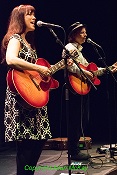 Just before the end of their recent twentieth anniversary tour of the UK, I was lucky enough to chat to Pete and Maura Kennedy at Kings Place in London just after their soundcheck. We talked about how they met, songwriting, technology and a whole lot more. Here’s how it went:
Just before the end of their recent twentieth anniversary tour of the UK, I was lucky enough to chat to Pete and Maura Kennedy at Kings Place in London just after their soundcheck. We talked about how they met, songwriting, technology and a whole lot more. Here’s how it went:
Allan – So, twenty years together this year. I’ve heard the story but I’m sure Music Riot readers will love it. Could you tell them the story of how you met?
Pete – Well, that happened down in Austin, Texas and we always say that the only trouble with Austin is that it’s surrounded by the rest of Texas, because it’s very much a college town and not typical of the American South at all but it’s a very rock ‘n’ roll and folk and songwriter-oriented town. There’s a place called The Continental Club which is the roots music Mecca of America; I was doing a gig there and that’s where the two of us met. First we talked about music, we didn’t actually play or sing and we then met up a day later at a little songwriters gathering and when we did sing together we found out that we loved each other’s songs and we had a bit of a harmony blend and so we started writing but I had to leave right away and play with Nanci Griffith up at Telluride, Colorado. I drove up there through the desert and into The Rockies and I called Maura after the show and we really wanted to get back together. We were talking on the phone and we decided that since we both knew that we loved Buddy Holly, we would meet at the equidistant point between Austin, Texas and Telluride, Colorado and it was Lubbock, Texas which is where Buddy Holly’s from and he’s buried there. We each drove five hundred miles solo with no cellphones, so we didn’t really know that the other person was doing this and we met at Buddy Holly’s grave and we’ve really been together ever since because very shortly after that, Nanci Griffith needed another band member, a female singer to do harmonies and Maura stepped right into that role and so we’ve been working together steadily ever since we first met.
Maura – And when we left for that tour, we were both in her band but, at the airport, she told us we were going to be her support act for that tour, back in 1993, and we’d only written that one song, we didn’t have an act worked up but we didn’t tell her any of this because we didn’t want to blow that opportunity so we bluffed our way through the first couple of gigs.
Pete – The Southport Theatre was the first gig.
Maura – And by the end of the tour we had our first album’s worth of songs.
Allan – That is a great story.
Pete – We always acknowledge Buddy Holly as our patron saint…
Maura – And Nanci Griffith as the bird that pushed the little chickadees out of the nest.
Pete – She was our mentor: no doubt.
Allan – The first time I saw you was actually in this venue two years ago and that year you had one album out, last year between you, you had two albums out, this year it’s three albums. By anyone’s standards that’s pretty good going, so what can you tell me about the three albums?
Maura – For some reason, both of us were on a real writing spree over the last six to eight months and we were both writing together, both writing independently and gathering songs and it was apparent that we had more songs than we needed for one album, but it also looked pretty obvious how the songs would divide up. The songs we were writing together would be on The Kennedys album, which is called “West”, and that came out last month. Then I was working with a published poet out in California; he provided me with all these lyrics that he wrote specifically for me to write music to and these had a different quality so we decided to have all those solo songs on my album “Villanelle”, which is coming out next week. Meanwhile Pete has been working on this, I think it’s his masterpiece, he’s been working on these songs a good five years. It’s a cycle of songs set in New York City and he sings on these. People are used to him releasing instrumental albums but this is a really cool rock ‘n’ roll album and it’s called “The Heart of Gotham” and that’s coming out in June. So rather than take the twentieth anniversary as a moment to look back we charged straight ahead.
Allan – So apart from having three albums of new material, over the years, how do you keep the live shows fresh?
Maura – Oh, that’s easy. For the past few years we’ve been doing all-request shows. Now we’ve got all this new material and we’re playing a lot of that but three albums is more than you can do in one show, so we’re mixing that up and playing a lot of new material this time. We always get people who have come to our shows before and they have requests so we try to honour as many of those as we can but the shows in the past four or five years have been really audience-driven and that keeps it fresh for the ones who come back to more than one show a year and it keeps it really fresh for us; we have to stay on our toes to remember all those songs.
Pete – We literally go through the audience right before the show and write down what people want to hear and that’s the setlist for that night, so every show is different. Right now we’re not doing that format because we have so many new songs we want to introduce those to the audience.
Maura – Although we have been getting some requests and last night we got requests for songs we haven’t played in a very long time, so we were brave and played them and it was fun.
Allan – That’s very like the New Jersey bands, Springsteen and Southside Johnny, they rely a lot on feedback from the audience and the musicians are good enough to do it as well.
Pete – I think because they came up playing in clubs and bars, and there you better play what people want to hear or they’ll throw things at you so you get used to pleasing the crowds, so to speak, and we’re lucky because, and I’m sure Bruce and Southside feel the same way, we have fans who know all our songs and they’ll ask for different songs from our catalogue so we can resurrect those.
Maura – I think maybe a lot of bands will get people who come out and see them once or twice; we have a lot of fans that come to every show that they can and so, to keep it fresh for them, it was a deliberate decision to make it audience-driven, for them more than anything else. It’s good for us too, but it was really to keep them coming back.
Allan – When I looked the twentieth anniversary thing, I looked back to 1995 and I thought that so many things have changed since that period in the music business…
Maura – In the world…
Allan – How have you reacted to the changes that have happened in the music business? Do you think it’s helped or hindered you?
Maura – There are so many different aspects to it. I remember when our very first album came out, “River of Fallen Stars”, it was on the very first Americana chart, there wasn’t such a thing before and nobody really knew what Americana was. At that time, independent artists really had a wide-open doorway into the music industry; radio stations were playing our stuff and there was very varied radio across the United States and I think that was probably true here too, and then things tightened up. The digital thing has really been difficult for a lot of people and I’m sure that our record sales in the traditional outlets are not as healthy as when we started but our audience, the baby boomers largely, are a segment of the population that has always valued music and they consider themselves to be patrons of the arts, so they come to shows and they buy records form us. In fact, I’ve often had people say: ‘How do you make more money, if I buy it from Amazon or from you?’ and they really want to know. I don’t know what we’d do without them, but we’re baby boomers too and we have the same outlook as far as the value of music is concerned.
Allan – It’s certainly my experience that most of the bands I see now aren’t really making any money out of record sales so people feel they have to buy a CD or t-shirt at the gig so that something goes back to the people that are making the music.
Pete – Record shops don’t really exist, in The States anyway, so it’s not like you’d put out a record and you sit back and wait for cheques to roll in (which never happened to us anyway) but that’s not a paradigm that even exists any more, so you really have to be playing gigs, which is OK, it’s been like that ever since the first cavemen were banging on rocks. They went out and played gigs and people gave them vegetables or whatever and this is basically that same system.
Allan – You seem to have embraced the social media side of things as well. I suspect that works well for you.
Maura – When we first started we had a mailing list and we would put stamps on and stick things in the mail and it was very expensive – it would cost about a thousand dollars to send out one mailer. One really good aspect of the digital world is that we’re able to contact our fans directly at no cost and what happened over the years is that we went from just putting out an electronic newsletter to embracing a number of social media outlets, not all of them, but the ones our fans use, Twitter and Facebook and I think what’s really important, and it’s worked for us, is to take a multi-pronged approach and get the word out in all the different realms. That way you’ll get a couple of people here, a couple of people there; it’s still word of mouth for us, it’s just that it’s digital now.
Allan – I can certainly see with your fans that social media enables you to create a community. It’s not so much artist and audience it’s everybody in it together.
Maura – People post photos and videos and they make song requests via social media and so they really do feel a part of it. One thing I do a lot if we’re coming to a town and ticket sales might not be as robust as we’d like, I’ll say ‘Hey guys, tell your friends we could really use your help on this show and we’ll love you forever’. And I find people really want to help; they do get the word out, they share that information and they really have a hand in helping us in more ways than just buying tickets and records.
Allan – It struck that your music seems to cross an awful lot of boundaries. How would you define it and who would you say has influenced you, apart from Buddy Holly?
Pete – Maura mentioned that we were on the first Americana chart and when we saw that we immediately had our own definition of Americana. A different one developed that was sort twangy, honky-tonk country and was restricted to just that and we never felt that was the entire breadth of American music. We do that stuff, our song “West” is a twangy country song because we love Gram and Emmylou and Buck Owens and Merle Haggard and stuff like that, but we don’t restrict ourselves to that at all. So we include George Gershwin and soul and jazz – that’s one of the great American art forms along with blues and rock ‘n’ roll and gospel; those things are all tied in together so Americana encompasses all of that stuff. Even “Closer Than You Know” has a kind of impressionistic feel to it and that’s Duke Ellington and Billy Strayhorn who were very heavily influenced by French Impressionism, so that brings that in too. Someone said the other day ‘You play a little Spanish sometimes’ and I said ‘Well, if you go down to the border of Texas, that’s the way people play down there’. So we’re trying to cover the entire geography because that’s what we do in our car and we try to do it musically too. We have the broadest possible definition of Americana.
Allan – Do you have a particular method of writing that you always use?
Maura – No, and that’s a real blessing; because we write in different ways, the music evolves over time. Our very first songs that we wrote together, “Day In and Day Out” was the very first song we wrote together, Pete gave me the title and I sang the title back to him and we wrote everything, music and words, together. The second song that we wrote together was “River of Fallen Stars” and he gave me an entire lyric sheet and I put a melody to that. On the album “Closer than You Know”, for a lot of those songs, Pete had recorded instrumental tracks with form but no melody and no words and I would put the whole song to that. On my new record, “Villanelle”, these are all lyrics that were sent to me by this poet B.D. Love and they’re in poem forms, forms I would never write in, so I’m trying to stay very true to the poetic forms and still make them sound like songs. Pete will sometimes write music first and sometimes lyrics, so we mix it all up. We try to not fall into a formula.
Allan – And what will the future bring? Next year four albums?
Maura – That’s a good question. We never know but we’re always really open and we always try and go with the flow. If you had asked us that question twelve months ago we wouldn’t have known we had three albums coming out; that came together in the last nine or ten months. So we don’t know but I’m sure it’ll be fun.
Allan – One last question. Do you have a song that makes you cry?
Maura – I’ve cried a lot singing songs. “When I Go” by Dave Carter is one of them. They change all the time. “I’ll Come Over” is a good example; that’s a song to my best friend and if I know somebody’s having trouble, I’ll dedicate it to them. I’ll start singing it and I’ll start crying; songs like that I can’t even talk about. And unfortunately, that was all we had time for before Pete and Maura had to get ready to go out and do their thing.
“West” and “Villanelle” are out now and “The Heart of Gotham” is out in June.


